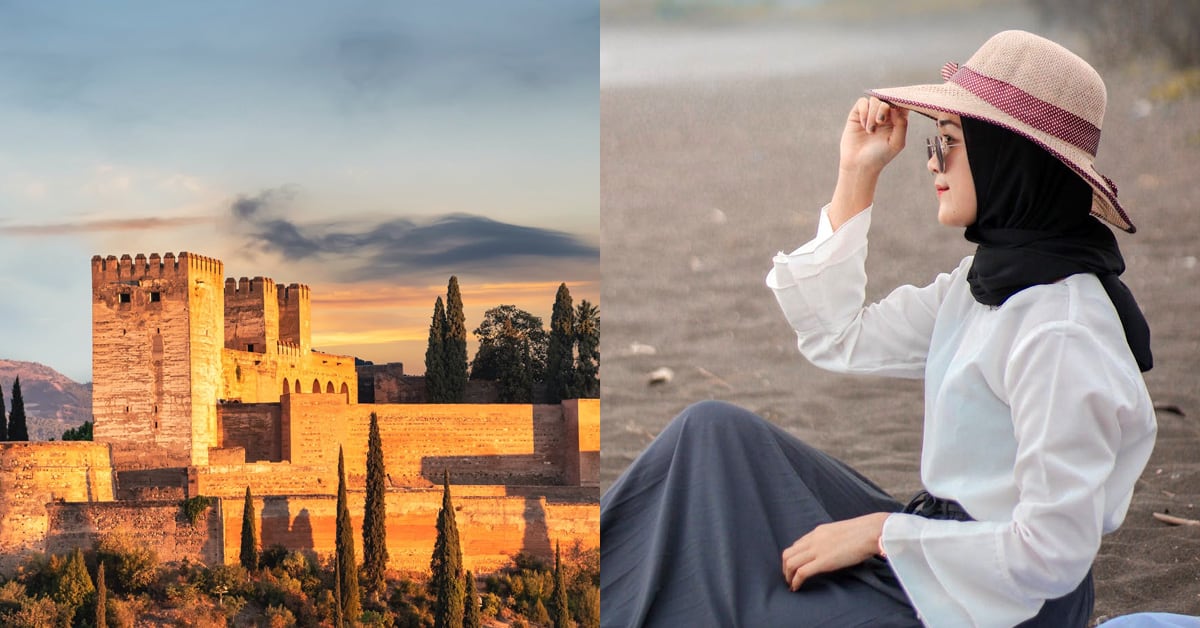Granada is a city located in the southern region of Spain, known for its rich history and cultural heritage. It is a popular destination for Muslim travellers due to its significant Islamic influence and historical landmarks.
The city was once the capital of the Muslim Kingdom of Granada, which ruled over Andalusia for over 700 years.
The legacy of this era can be seen in the city’s architecture, cuisine, and traditions. Granada is home to the famous Alhambra Palace, a UNESCO World Heritage Site, which is a testament to the city’s Islamic past.
Muslim travellers can also visit the Albaicin neighbourhood, a well-preserved example of a medieval Muslim quarter.
With its unique blend of Islamic and Spanish culture, Granada offers a fascinating experience for Muslim travellers seeking to explore the history and heritage of Andalusia.
Is Granada Muslim friendly?
Is Granada Muslim friendly?
Granada, Spain, is generally considered to be Muslim-friendly, as it has a rich Islamic history and a significant Muslim population.
The city is home to several mosques, halal restaurants, and Islamic cultural centers.
Additionally, Granada’s main tourist attraction, the Alhambra, is a stunning example of Islamic architecture.
However, it is essential to remember that Spain is a predominantly Catholic country, and local customs and practices may differ from those in predominantly Muslim countries.
Does Granada have halal food?
Yes, Granada does have halal food options available.
There are several halal restaurants and food shops in the city that cater to Muslim dietary requirements.
Some popular halal restaurants in Granada include Restaurante Arrayanes, Restaurante Al-Firdaus, and Restaurante Alhambra.
What is the largest mosque in Granada?
The largest mosque in Granada is the Great Mosque of Granada, also known as the Mezquita Mayor de Granada.
It was built in the 16th century during the reign of the Nasrid dynasty and was originally used as a mosque.
However, after the Christian conquest of Granada in 1492, it was converted into a church. In the 18th century, it was partially destroyed by an earthquake and was later restored in the 20th century.
Today, it serves as a cultural center and a place of worship for the Muslim community in Granada.
The mosque has a capacity of 1,500 worshippers and features a beautiful courtyard, a prayer hall, and a minaret.
Is Granada safe for Muslim?
Yes, Granada is generally safe for Muslims. The city has a significant Muslim population and a rich Islamic history, with the famous Alhambra palace being a prime example.
However, as with any destination, it is important to exercise caution and be aware of your surroundings.
It is also recommended to dress modestly and respect local customs and traditions.
Are there still many Muslims in Granada?
According to the latest available data, Granada, Spain has a significant Muslim population.
It is estimated that around 5% of the population of Granada is Muslim.
The city has a rich Islamic history and is home to several important Islamic landmarks, including the Alhambra palace and the Granada Mosque.
Is Granada a good place to live in for Muslims?
Granada is a city with a significant Muslim population and a rich Islamic history.
The city is home to the Alhambra, a famous Islamic palace and fortress, with several mosques and halal restaurants.
The city also hosts the annual International Festival of Islamic Culture.
Therefore, it can be considered a good place to live in for Muslims.
As a Muslim, what should I prepare before travelling to Granada?
If you are a Muslim planning to travel to Granada, Spain, here are some things you may want to consider:
- Halal food: If you follow a halal diet, you may want to research halal restaurants or grocery stores in Granada before your trip.
- Prayer facilities: You may want to research the location of mosques or prayer facilities in Granada.
- Clothing: Spain is a predominantly Catholic country, but it is respectful to dress modestly when visiting religious sites. You may want to pack clothing that covers your shoulders and knees.
- Ramadan: If you are traveling during Ramadan, you may want to research the availability of halal food and prayer facilities during this time.
- Cultural norms: It is important to be respectful of the local culture and customs. For example, it is common to greet people with a handshake or kiss on the cheek in Spain, but this may not be appropriate in all situations.

